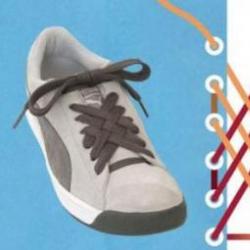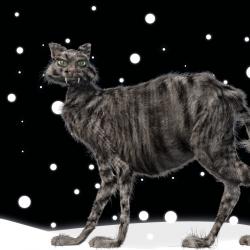What does the proverb “If you love to ride, love to carry a sled” mean? Expression: Do you like to ride, love the sled
2
last
lit. if you like to slide down-hill you"ve got to pull up your sled; cf. after the feast (dinner) comes the reckoning; he that would eat the fruit must climb the tree; he that would have eggs must endure the cackling of hens; he who would eat the nut must first crack the shell; he who would search for pearls must dive below; he that will conquer must fight; if you dance you must pay the fiddler; if you call a tune you must pay the piper
You yourself are confused - unravel yourself; If you knew how to brew porridge, you also knew how to dissolve it; If you like to ride, you also like to carry sleds. Exactly; This is exactly what he will say tomorrow, no matter what his son tells him. (M. Saltykov-Shchedrin, Lord Golovlevs)- You don"t gather grapes from thesetles; as you made your bed so you must lie on it; you called the tune, now you must pay the piper; yes, that was it - this was precisely what he would say the next day , whatever his son might tell him.
3 you love to ride, you also love to carry sleds
2) Set phrase: after dinner comes the reckoning (literally: After lunch you have to pay) , he that would eat the fruit, he that would eat the fruit must climb the tree (literally: He who loves fruits must climb a tree to pick them) , he that would have eggs must endure the cackling of hens, he that would have the fruit, he who likes skiing downhill must enjoy climbing uphill, if you dance you must pay the fiddler (literally: If you dance, then you have to pay the violinist) , if you dance you must pay the "fiddler (one cannot have pleasure either without working hard for it or without paying a lot afterwards) , love me, love my dog, must climb the tree, no pains, no gains, you called the tune, now you must pay the piper, you"ve made your bed and now you must lie on it, he who wishes the end must wish the means, when you play, you have to pay
4 if you like to ride, you also like to carry sleds
5 If you love to ride, you also love to carry sleds
You must pay the price of every pleasure, joy, conve nience, etc. See Eat honey, but beware of the sting (E), Love warmth - and endure the smoke (L), Sweet in your mouth, but bitter in your throat (Q
Cf: After dinner comes the reckoning (Br.). After the feast comes the reckoning (Am. , Br. ). After your fling, watch for the sting (Am. , Br. ). Not who calls the tune must pay the piper (Am.). If you dance, you must pay the fiddler (Br.). If you want to dance, you must pay the fiddler (Am. ). Sweet is the wine, but sour is the payment (Am. )
6 you love to ride, you also love to carry sleds
7 If you love to ride, you also love to carry a sled.
phrases. If you like to sled - you have to like to drive the sledge.
8 love to ride, love to carry sleds
9 sled
10 LOVE
11 RIDE
See also in other dictionaries:
If you love to ride, you also love to carry sleds- If you love to ride, you also love to carry sleds. If you love currants, you will also love them. Wed. I am surprised (at these people)... I deliberately invite inevitable retribution upon myself... and then I am indignant at the consequences of my actions... I do not want to serve my sentence... ... Michelson's Large Explanatory and Phraseological Dictionary (original spelling)- SLEDGE, sleigh, sleigh, unit. no (colloquial). decrease caress. to the sled. “If you love to ride, you also love to carry sleds.” (last) Ushakov’s explanatory dictionary. D.N. Ushakov. 1935 1940 … Ushakov's Explanatory Dictionary
Stepanov, Petr Ivanovich- fiction writer, born near Moscow on March 1, 1812, died on March 1, 1876, was brought up in a famous boarding school at Moscow University, where he completed his course with honors, and then entered service in the office of the Moscow Governor General. IN… … Large biographical encyclopedia
don't eat bitter, don't eat sweet- Wed. Not everyone can live in abundance, in freedom, happily ever after... whoever serves, he also suffers; Don’t eat bitter things, don’t eat sweet things, without smearing them with tar, you won’t even eat the brass. Dahl. The tale of Ivan, a young sergeant. See living happily. See you like to ride, love... Michelson's Large Explanatory and Phraseological Dictionary
The Russian people, unusually observant and savvy, came up with many interesting proverbs and sayings, which reflected their understanding of love, friendship, truth, kindness, hard work and other moral categories. Sometimes crafty, sometimes ironic, but always kind and edifyingly wise, these grains of folk art form a real treasury from which you can draw endlessly.
Sled uphill
“If you love to ride, you also love to carry a sled!” - says the Russian proverb. What does it mean? In the literal sense, you can understand it like this. Imagine a clear sunny day with a slight frost. The snow sparkles on the trees and roofs of houses, and winter silver creaks underfoot. It’s easy to breathe and cheerful - how can you not go up the hill with friends! But... if you love to ride, you also love to carry a sled! It’s not easy to climb up a slippery hill, even if it’s steep. And the sleigh gets in the way and pulls me down. But you really want to climb to the very top of your head, so that from there, with the breeze, you can fly like an arrow to the foot, to the enthusiastic cries of your friends and comrades! At this moment the meaning of the statement is revealed: “If you love to ride, you also love to carry a sled.”
From particular to general
Let's consider another situation. You want to throw a fun party at home. But you should prepare for it in advance: tidy up the rooms, think about music, take care of refreshments. That is, to expend some effort. So, it turns out again: if you love to ride, you also love to carry a sled! But after the party, you again have to clean up the rooms, in the yard, deal with dirty dishes, and sometimes with neighbors if they disturbed someone else’s sleep and peace. As you can see, this proverb is applicable to those situations when a person, in order to get something good, needs to work, spend his energy, time, i.e., sacrifice something. If you like to ride, you also like to carry a sled, in other words, it is understood this way: you like to relax, have fun - don’t shy away from business, worries, labor. Do not shift your responsibilities onto the hands and shoulders of others. Learn to take responsibility.

So that the child understands you
How to explain the meaning of a proverb to a child, say, five or six years old? There are many ways to do this. Children often ask their parents to get some kind of animal for them. A dog or a cat, fish or birds, hamsters or guinea pigs - it doesn’t matter, as long as you can play with them. Moms and dads should explain to their children that pets need to be looked after: fed, kept clean, walked, monitored for their well-being. What meaning of the proverb is realized in such conversations? Very important, moral, educational.

Shades of meaning
The child will understand several serious truths at once. Firstly, that any living creature is not a toy that you play with and throw away. The Little Prince's phrase that we are responsible for those we have tamed will be very appropriate here. Your son or daughter will try a measure of responsibility with their capabilities - and this is already an excellent result! This means that the child will begin to think about other problems of existence that previously eluded his attention or simply did not occur to him due to his small age and little life experience. But this is exactly how growing up happens and Secondly, little philosophers will understand how much you value them, how you try to make their life joyful and bright, since you gave it to your children. They will understand and certainly appreciate it when a mother, tired after work, rushes to the stove to cook something delicious for dinner. Or when dad, returning home in the evening, doesn’t go to the TV, but starts having fun with his kids. A five- or six-year-old person can easily compare himself to those very sleds, which, since they love to ride, they also love to carry!
Do you like to ride
(from last. "If you like to ride, you also like to carry sleds" - inevitably you have to pay for what was done with pleasure, pleasure)
1) original value;
2) demand to leave.
Live speech. Dictionary of colloquial expressions. - M.: PAIMS. V.P. Belyanin, I.A. Butenko. 1994 .
See what “Do you like to ride” is in other dictionaries:
DO YOU LOVE TO RIDE- Well, screw yourself last. before: Do you love to ride, love to carry sleds... Explanatory dictionary of modern colloquial phraseological units and proverbs
If you love to ride, you also love to carry sleds- If you love to ride, you also love to carry sleds. If you love currants, you will also love them. Wed. I am surprised (at these people)... I deliberately invite inevitable retribution upon myself... and then I am indignant at the consequences of my actions... I do not want to serve my sentence... ... Michelson's Large Explanatory and Phraseological Dictionary (original spelling)
if you like to ride, you also like to carry sleds- adverb, number of synonyms: 3 you love honey, love and chill (3) you love currants, love and set your teeth on edge (3 ... Synonym dictionary
you love to ride, you also love to carry sleds- If you love currants, you will also love them. Wed. I am surprised (at these people)... I consciously call upon myself the inevitable retribution... and then I am indignant at the consequences of my actions... I don’t want to serve my sentence as a decent person who understands... ...
if you love honey, you also love chills- adverb, number of synonyms: 3 you like to ride love and carry sleds (3) you love currants love ... Synonym dictionary
if you love currants, you will also set your teeth on edge Synonym dictionary
if you love warmth, tolerate smoke- adverb, number of synonyms: 3 you love to ride, love and carry sleighs (3) you love honey, love and chill... Synonym dictionary
drivers- Do you like to ride? Love and ride. Land for the peasants! Factory workers! For travel to the driver. (inscription on the bus) The side mirror in the car serves to show the rear view to the driver's eye. (autocourses) Driver's rear view mirror... Than... ... Original dictionary selection of aphorisms
Stepanov, Petr Ivanovich- fiction writer, born near Moscow on March 1, 1812, died on March 1, 1876, was brought up in a famous boarding school at Moscow University, where he completed his course with honors, and then entered service in the office of the Moscow Governor General. IN… … Large biographical encyclopedia
If you don’t work hard, you won’t get bread- They won’t force you to work, and they won’t give you food. Wed. Without pains no gains. Nul bien, sans peine. Chi non lavora, non mangia. Wed. Thomaso Buoni. Tresoro di prov. It. 1510. Wed. Nil sine magno Vita labore dedit mortalibus. Life without much work... Michelson's Large Explanatory and Phraseological Dictionary
Books
- Funny hide-and-seek games. Animals. Transport, Leiber Lila. L.. Book-reversal. Funny hide-and-seek games. Animals Many animals live in the forest, on the farm and even in the zoo! Which ones do you already know and can name? Let's play some fun hide-and-seek games! In the forest…
Philologist, candidate of philological sciences, poet, member of the Union of Writers of Russia.
Publication date: 10/14/2018

Do you like to relax and have fun? Most likely yes, who doesn’t like it... Do you think that in order to have a good rest, sometimes you need to work hard? If yes, then you are exactly the person whom the instructive proverb sets as an example “if you love to ride, you also love to carry sleds”.
Let’s try to figure out why the story is about sleds, and what meaning is put into this expression.
Like many other proverbs of the Russian language, the proverb in question has a figurative meaning; its meaning can extend not only to the actions described in it, but also to other situations in a person’s life. Thus, the proverb “If you love to ride, love to carry a sled” can be interpreted as “If you love to have fun, love to work.”
The expression is quite common in modern Russian speech, because its use is appropriate in all spheres of life. For example, the phrase can be used by parents in relation to children who have played happily and scattered toys, with the phrase “if you love to ride, love to carry sleds,” parents encourage children to clean up the room and put the toys in their places, thus teaching them to be in order.
It should be noted that the proverb can be applied not only in relation to children, but also in relation to adults, for example, after receiving guests and celebrating a family birthday, as a rule, the time comes for cleaning and washing dishes, in this situation family members, starting cleaning, they can humorously say “well, if you like to ride, you also like to carry sleds,” hinting that after fun entertainment, they should clean up and put the house in order.
In both examples, the relationship between rest and work can be seen. The phrase in a sense reminds us that work is an integral part of entertainment and relaxation.
The instructive idea was formed very simply: a sled is a winter cart on small runners, designed for riding from the mountains; accordingly, in order to move it, you need to pull a rope or push it from behind; Skiing down the snowy mountains is a popular winter activity for children.
A logical chain with a didactic slant is born by itself: going down the mountain is fun, the sled rolls downhill quickly, but going up the mountain again is a leisurely and tiring task.
Thus, using the example of a popular game among children, an edifying message is revealed: in order to get a portion of fun and joyful emotions, you first need to work a little - drag the sled up the mountain.
You love to ride, you love to carry a sled - everything in the world has a price, for everything - entertainment, joy, achieving something - you will definitely have to pay: with labor, time, money, reputation, losses; sometimes immediately, sometimes graduallyMoreover, for some reason, pleasure and celebration are necessarily followed by problems and sorrows, but misfortunes come and remain
English analogues of the proverb “if you love to ride, love to carry a sleigh”
- after dinner comes the reckoning — after lunch you have to pay
- he that would eat the fruit, he that would eat the fruit must climb the tree — someone who loves fruits should climb a tree to get them
- after the feast comes the reckoning — after every holiday comes everyday life
he that would have eggs must endure the cackling of hens, he that would have the fruit, he who likes skiing - downhill must enjoy climbing uphill, if you dance you must pay the fiddle — if you dance, then pay the violinist
- as you made your bed so you must lie on it — as the bed is made, so lie on it
- you called the tune, now you must pay the piper — ordered music, paid the bagpiper
Synonyms of the saying “if you love to ride, love to carry a sled”
- don't crack the nut, don't eat the kernel
- if you love honey, you also love the cold
- if you love currants, you will also love them
- if you love warmth, tolerate smoke
- If you want to eat rolls, don't sit on the stove
- If you don't work hard, you won't get bread
- lie on the floors and can’t see the slice
- sweet hedgehog won't come lying down
- What you grind, you put in the bin
- If you don’t work hard, no bread will be born
Application of the expression in literature
-
“...I consciously call upon myself the inevitable retribution... and then I am indignant at the consequences of my actions... I don’t want to serve my sentence as a decent person who understands the meaning of the popular saying: if you love to ride, you also love to carry a sleigh.”(Boborykin “Gone Wise”)
-
“Well, why are we throwing the unfortunate baby from porch to porch? Is it his fault that he was born? We are scoundrels... we love to ride on sleds, but innocent children have to carry the sleds.”(Chekhov “Lawlessness”)
-
“What is my fault? - Ah!.. - If you love to ride, love to carry sleighs...”(Reshetnikov “Where is better?”)
-
“If you get confused, unravel yourself; If you knew how to brew porridge, you also knew how to dissolve it; If you love to ride, you also love to carry sleds. Exactly; this is exactly what he will say tomorrow, no matter what his son tells him.”(Saltykov-Shchedrin “Lord Golovlevs”)






